This website uses cookies
We use cookies to ensure that we give you the best experience on our website. If you continue to use this site we will assume that you are happy with it.
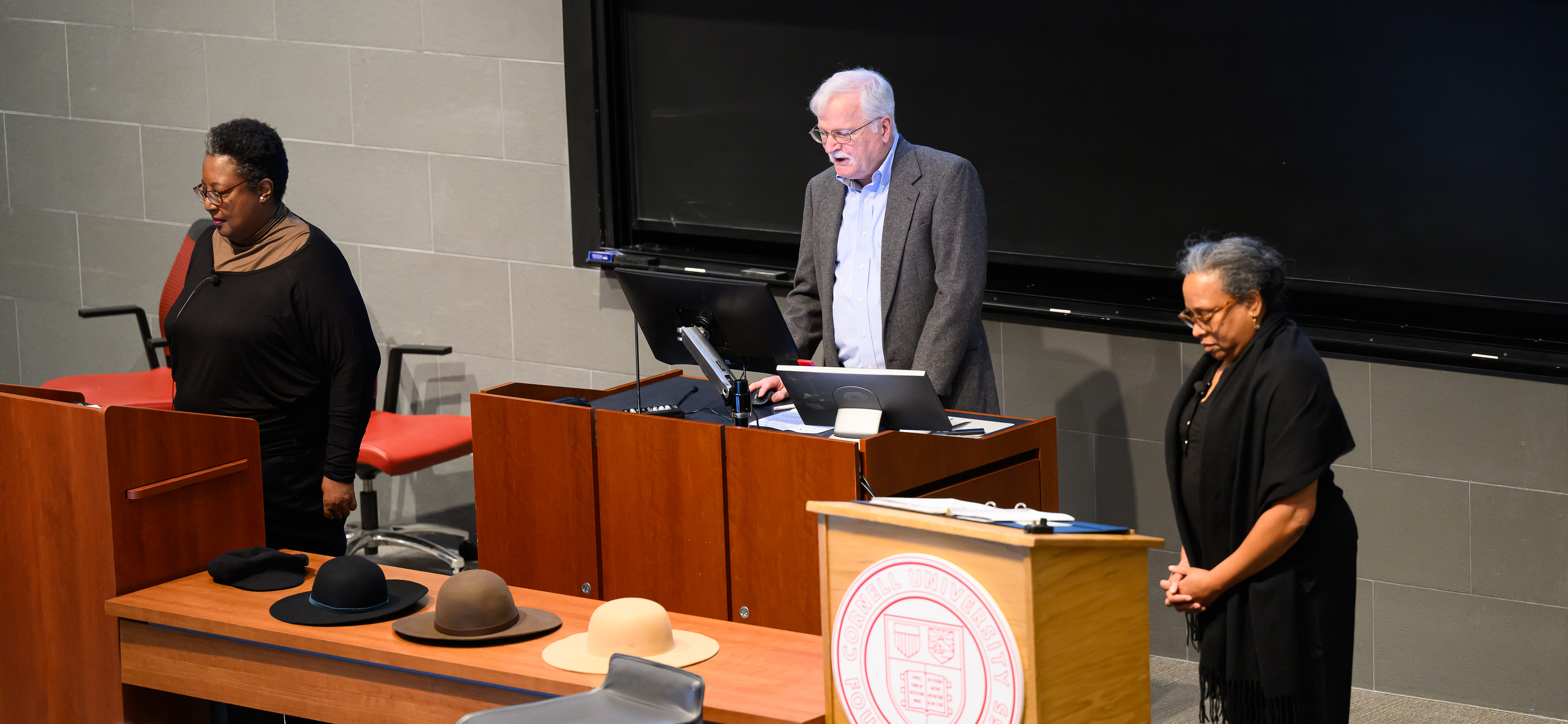
A stray Yankee shell hit the cabin porch just feet from where nine-year-old George Washington Fields and his family watched Union forces overpower Confederate troops at the plantation where the Fieldses were enslaved, in Hanover County, Virginia, in 1863.
Fields’ mother saw her chance, and took it.
Martha Ann Fields gathered her family’s meager belongings and fled with six of her children, traveling ninety miles by foot, dugout canoe, wagon, and barge to the safety of Union-held territory. She urged them on, repeating “Come on, children.”
That’s the title of a newly published autobiography by George W. Fields, Class of 1890, who would go on to become Cornell Law School’s first Black graduate. He was one of the first three Black Americans to graduate from Cornell and the only formerly enslaved person to get a degree from the university. (While there were Black students in the 1870s, most were from Cuba and the Caribbean.)
On February 12, the Law School hosted a dramatic reenactment of the family’s escape to freedom, performed by a Fields descendant and a genealogical researcher, to celebrate the launch of Fields’ autobiography. “Come on, Children”: The Autobiography of George Washington Fields, Born a Slave in Hanover County, Virginia, was edited by Kevin Clermont, the Robert D. Ziff Professor of Law at Cornell Law School. The event was held before an audience of students, faculty, and staff in the Elizabeth Landis Auditorium of Myron Taylor Hall.
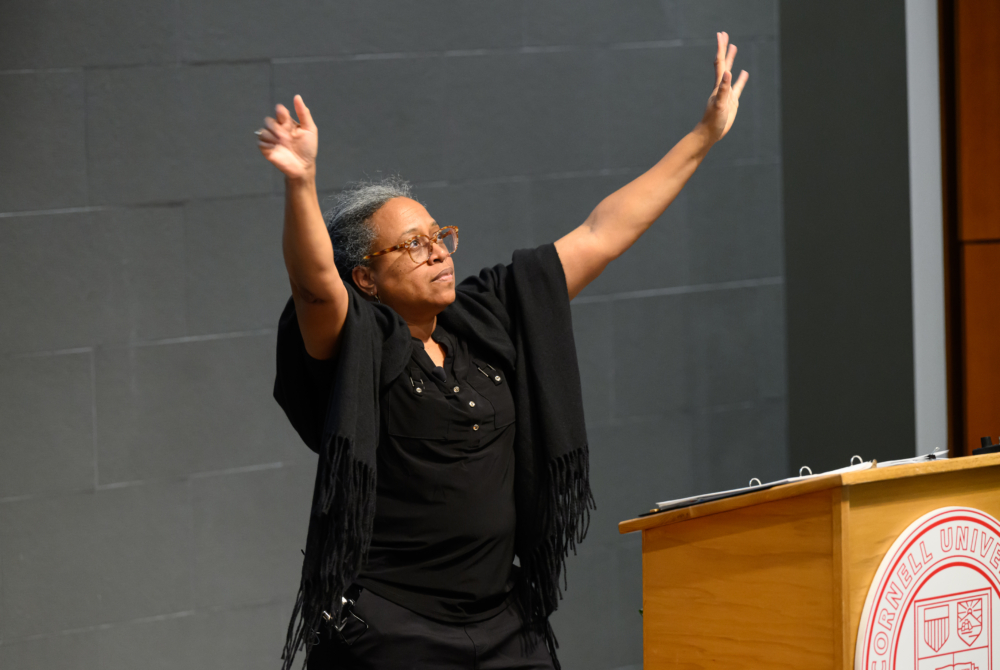
Ajena Cason Rogers, G.W. Fields’ great-great-grandniece and a historical interpreter with the National Park Service, performs in “Flight to Freedom: The Fields Family and Freedom’s Fortress” on February 12 at the Law School.
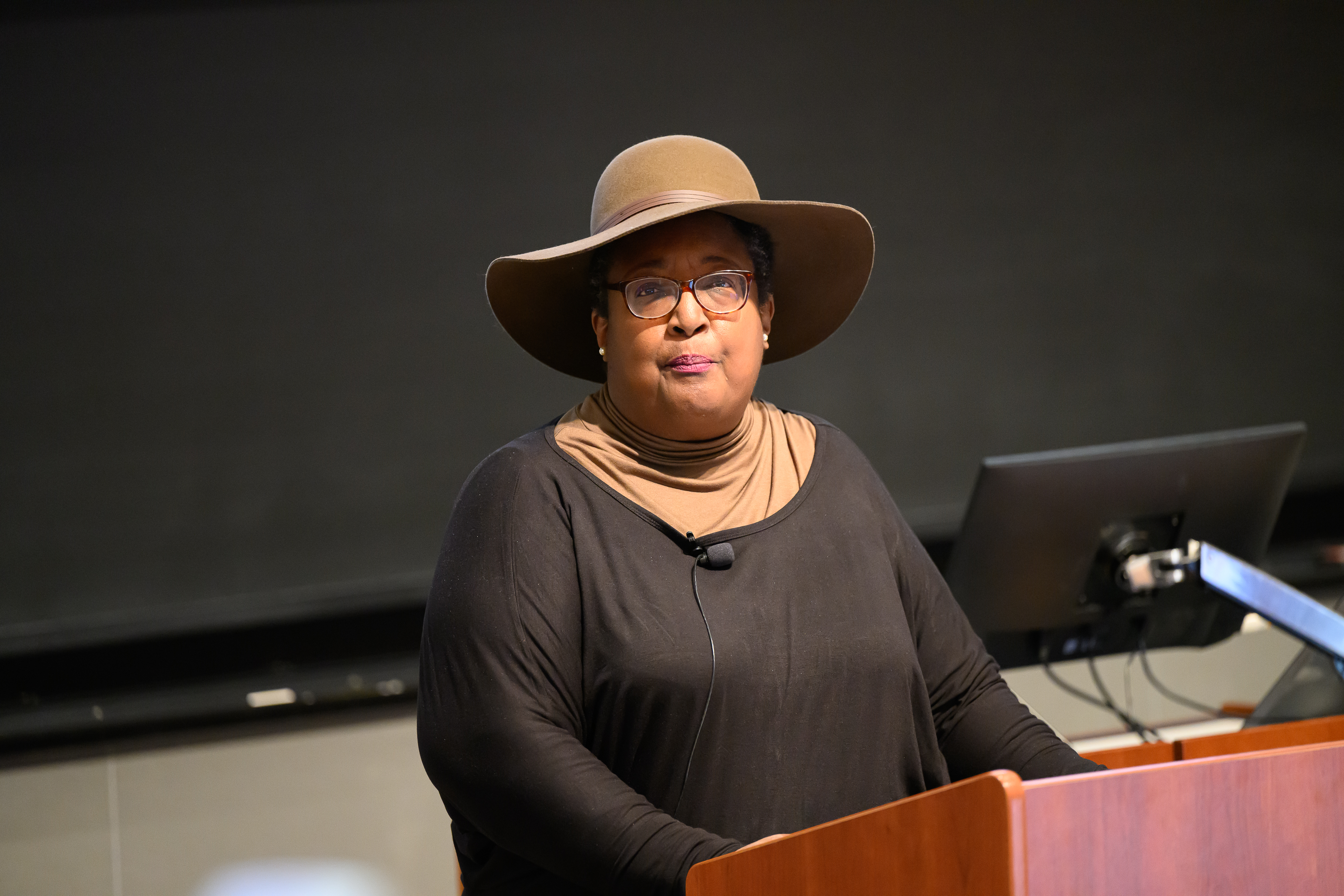
Drusilla Pair, a genealogical researcher specializing in the Fields family, performs in“Flight to Freedom: The Fields Family and Freedom’s Fortress” on February 12 at the Law School.
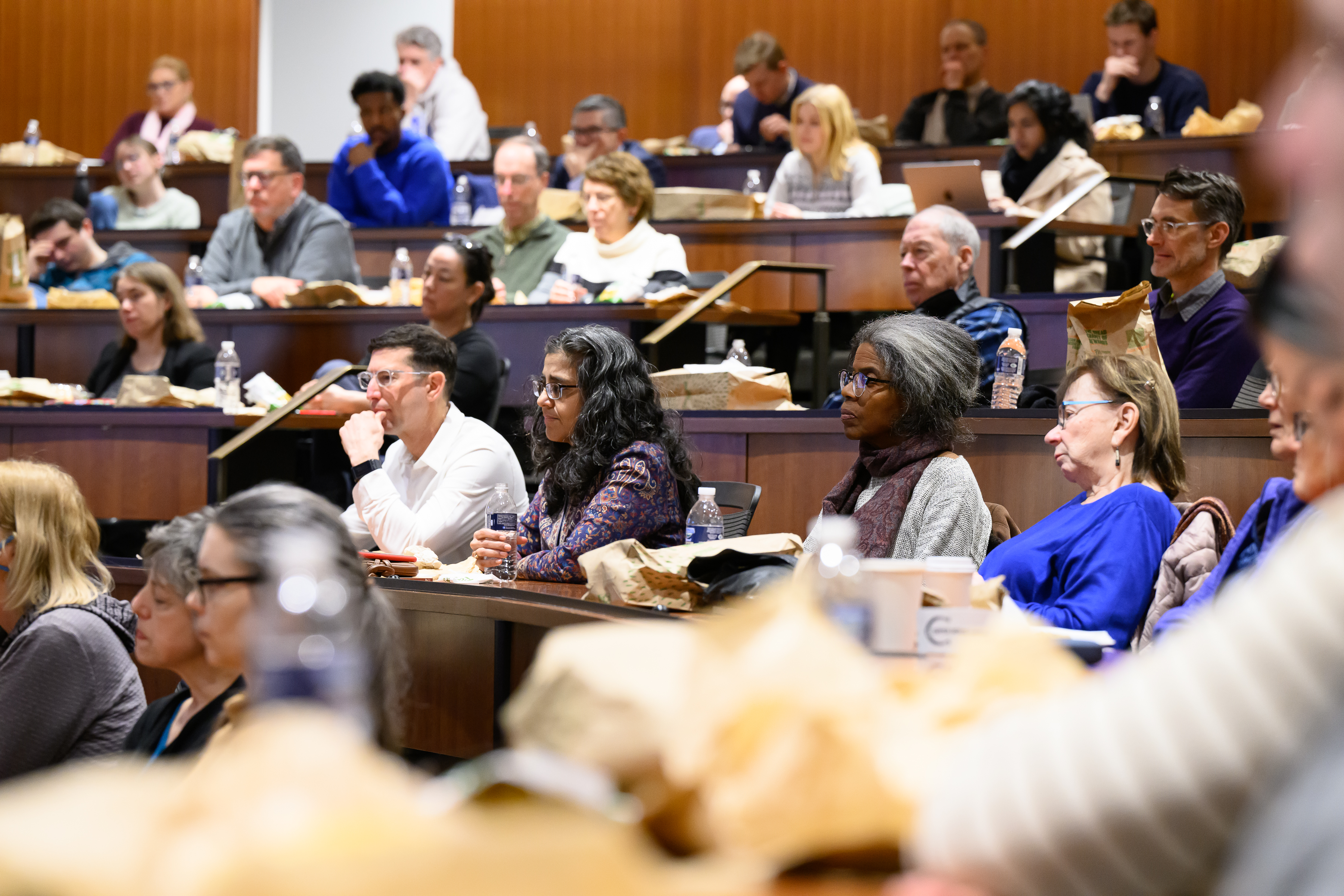
Members of the audience at the“Flight to Freedom” performance, which took place in the Elizabeth Landis Auditorium of Myron Taylor Hall.
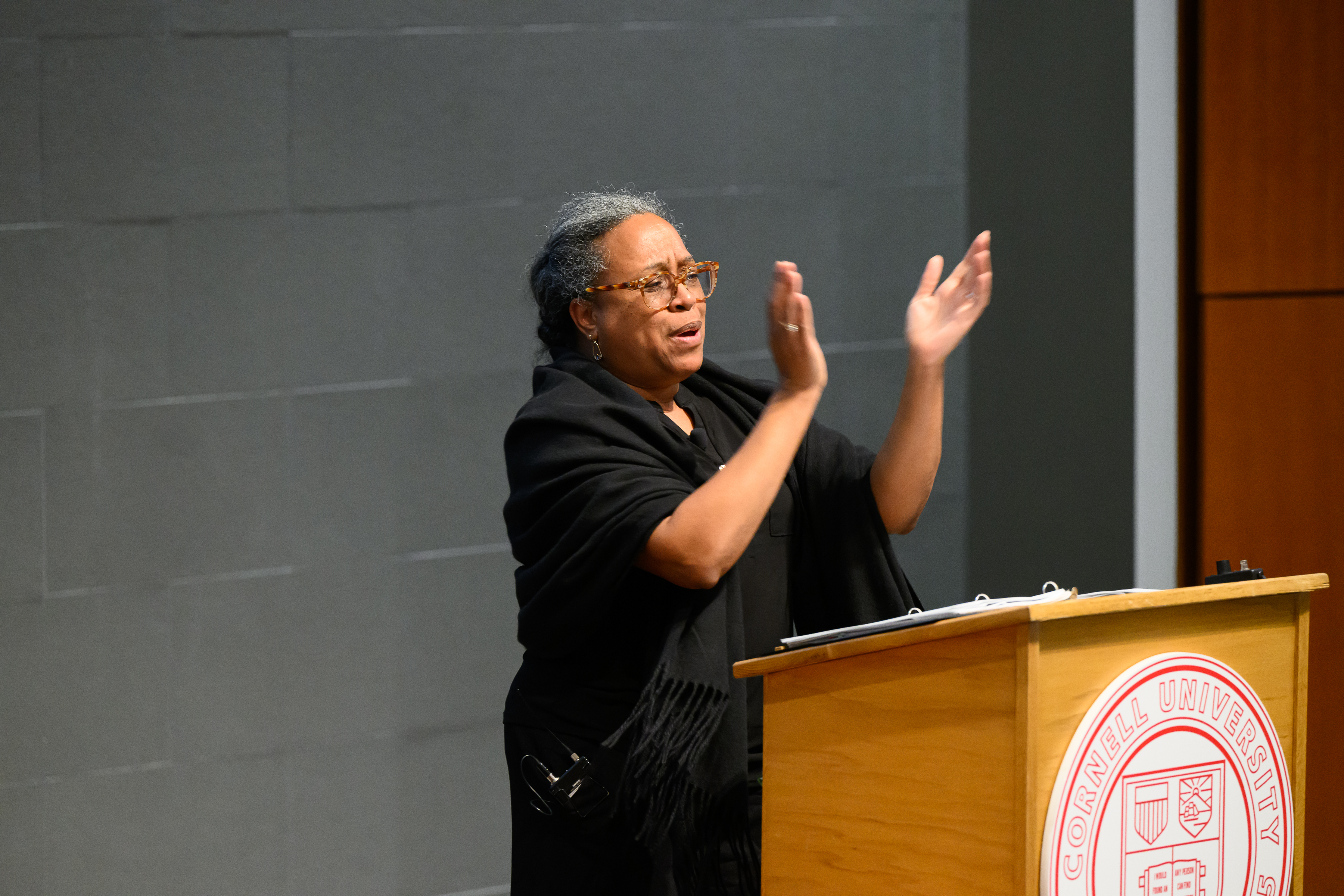
Ajena Cason Rogers
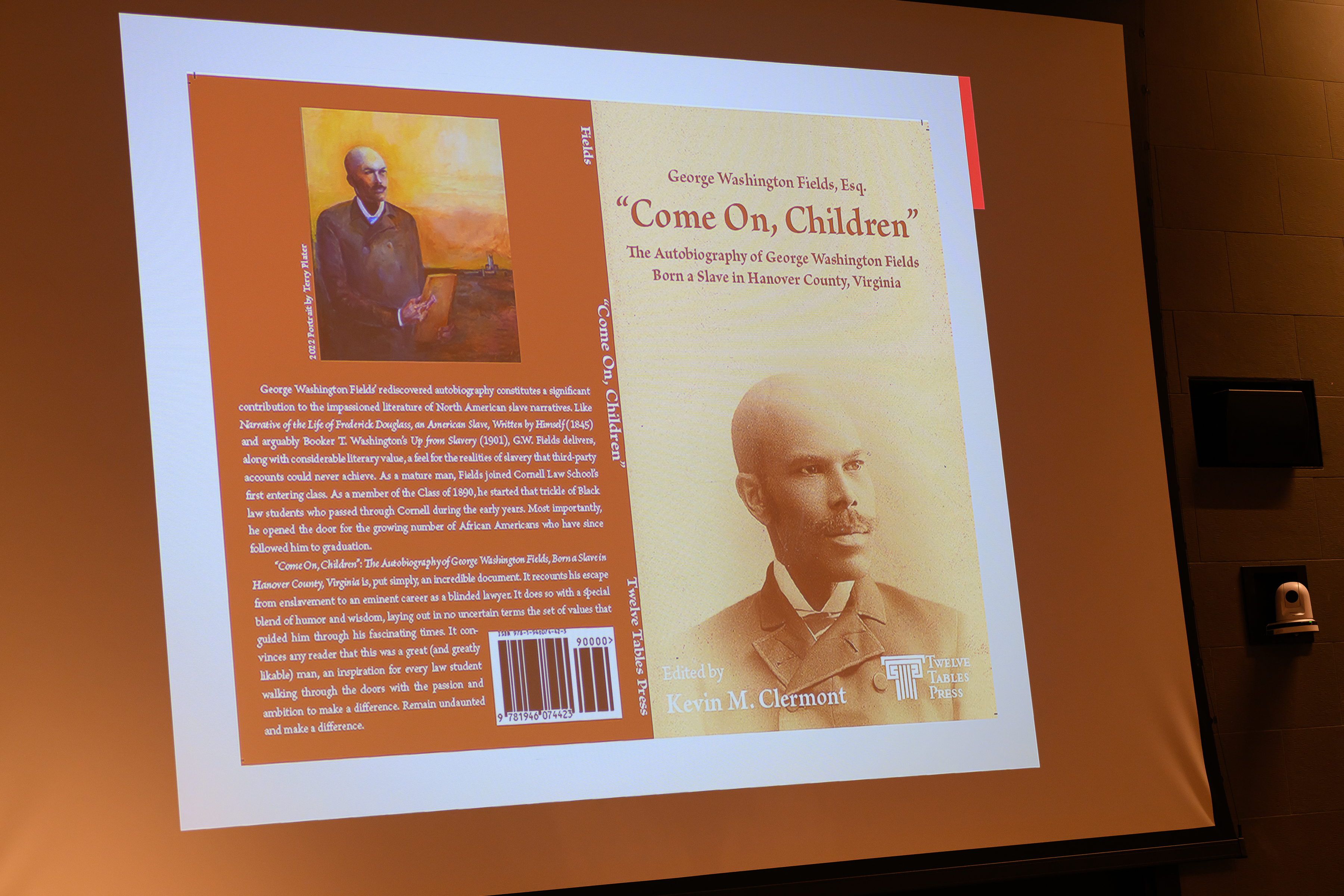
The cover of Come on, Children: The Autobiography of George Washington Fields, Born a Slave in Hanover County, Virginia.
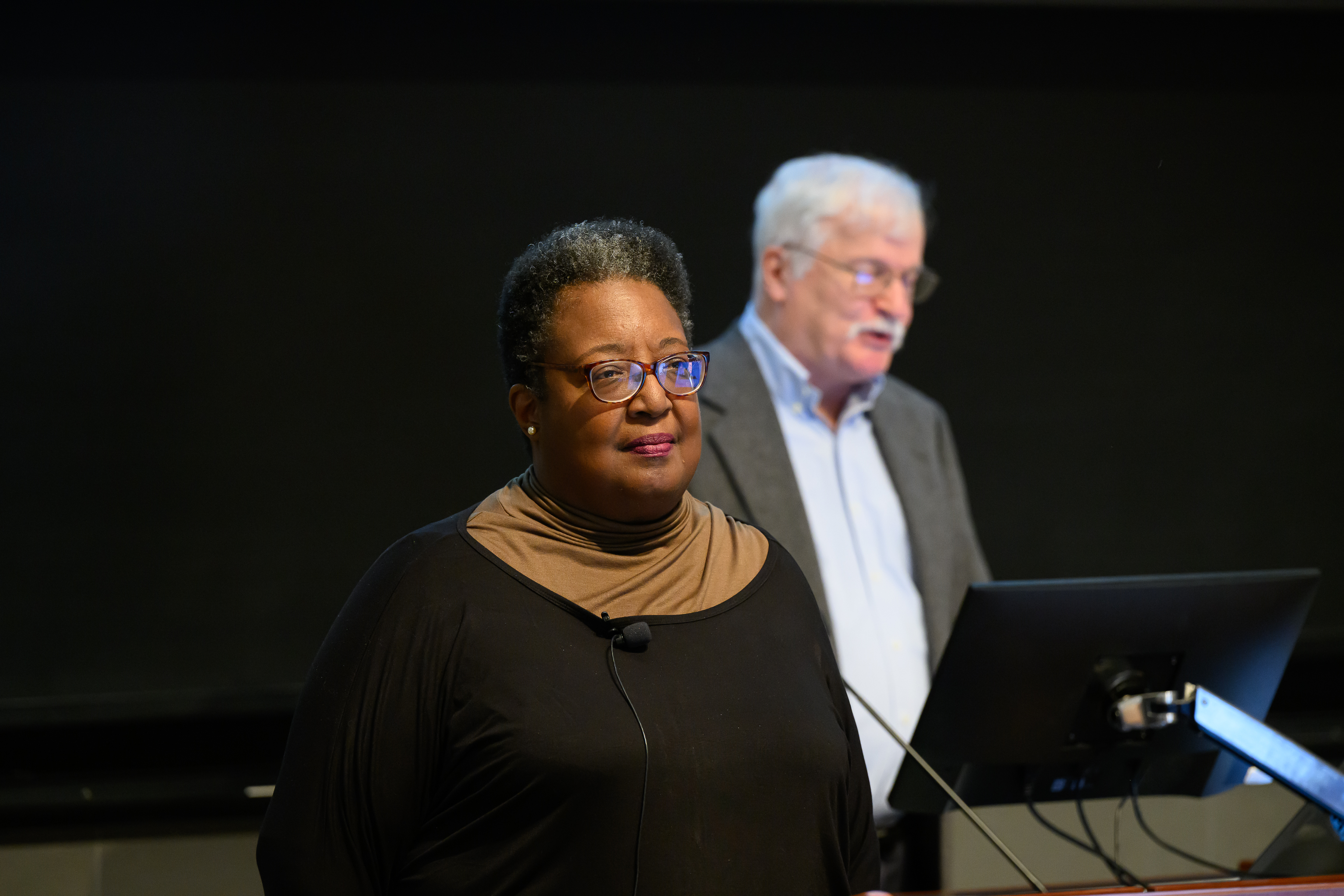
Drusilla Pair (foreground) with Kevin Clermont, Robert D. Ziff Professor of Law
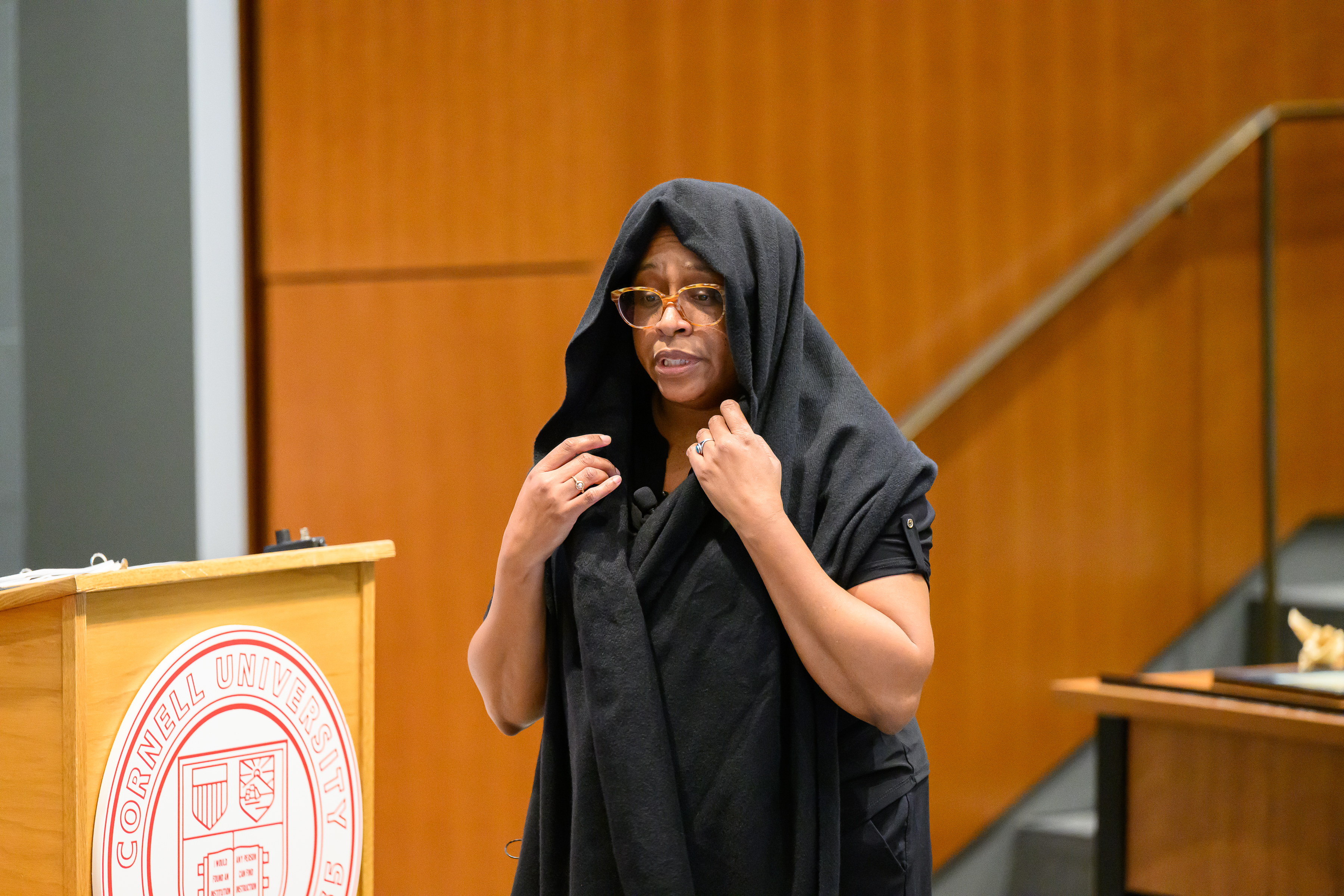
Ajena Cason Rogers
The riveting performance of “Flight to Freedom” featured Ajena Cason Rogers, Fields’ great-great-grandniece and a historical interpreter with the National Park Service, and Drusilla Pair, a genealogical researcher specializing in the Fields family. Rogers and Pair began creating the theatrical art piece in 2012, basing it on oral histories, documents including family bibles and grave markers, spiritual songs and the autobiography, which Fields wrote about fifty years after the Civil War. They and Clermont researched Fields’ story independently for years.
“We decided to use our gifts with presentation [but] we wanted something more than just a PowerPoint lecture, we wanted to make it a bit more interesting and tell a story.”
During their powerful and painstakingly honest performance, Rogers and Pair truly personified the spirits of Martha Ann and her family. When they sang the spiritual songs that Martha Ann would likely have sung to her children, there was a palpable sense of hope that soon she and her family would be free.
“I particularly liked the part describing how the family crossed the water, on a boat, one by one. I could visualize the scene and was on the edge of my seat until we learned that everyone safely reached the other side,” said Yin Yin Wu ’25.
“I was extremely pleased by how the event went,” said Kevin Clermont. “Ajena and Dru were wondrous. I have been communicating with them for a dozen years, but only by e-mail. In person, they couldn’t have been nicer or funnier! And they loved Cornell.”
Read more about the book and performance in this article by Susan Kelley of the Cornell Chronicle.
Watch a recording of the event here.